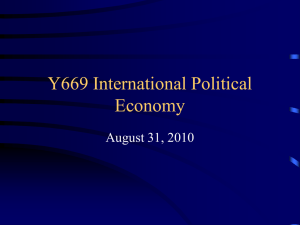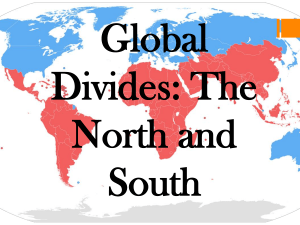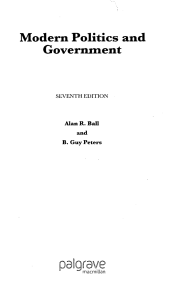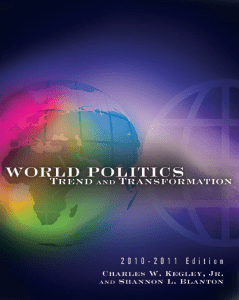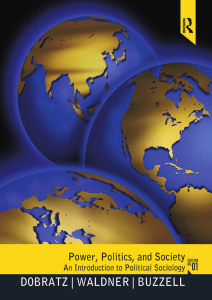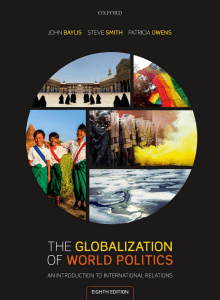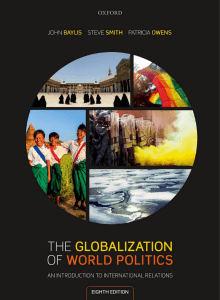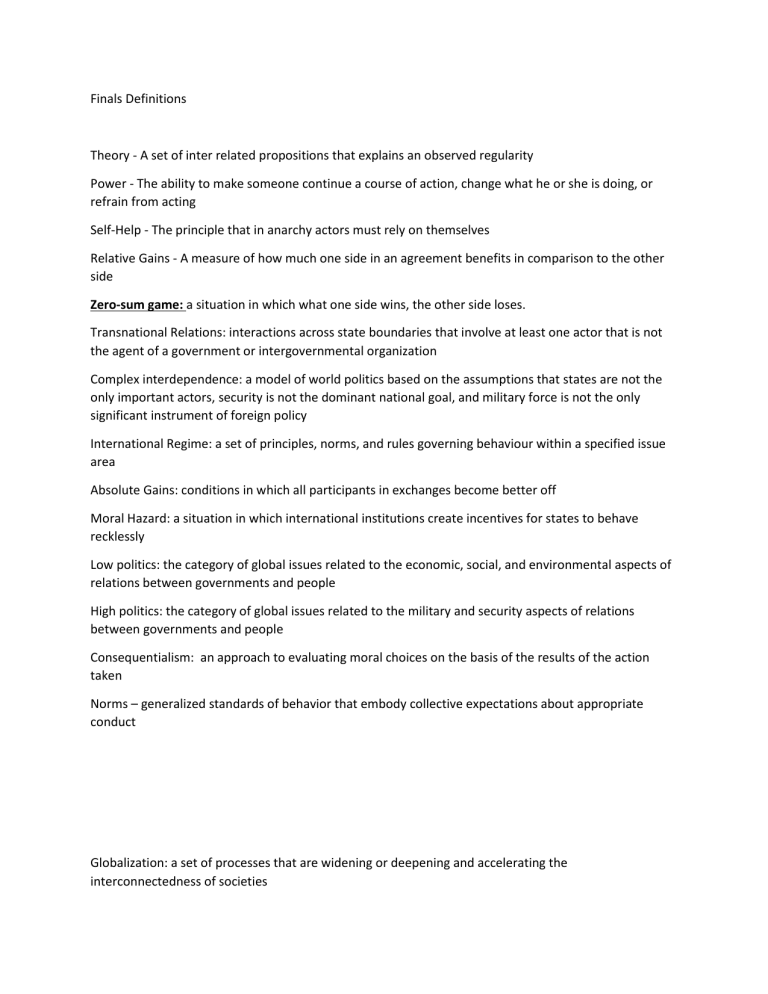
Finals Definitions Theory - A set of inter related propositions that explains an observed regularity Power - The ability to make someone continue a course of action, change what he or she is doing, or refrain from acting Self-Help - The principle that in anarchy actors must rely on themselves Relative Gains - A measure of how much one side in an agreement benefits in comparison to the other side Zero-sum game: a situation in which what one side wins, the other side loses. Transnational Relations: interactions across state boundaries that involve at least one actor that is not the agent of a government or intergovernmental organization Complex interdependence: a model of world politics based on the assumptions that states are not the only important actors, security is not the dominant national goal, and military force is not the only significant instrument of foreign policy International Regime: a set of principles, norms, and rules governing behaviour within a specified issue area Absolute Gains: conditions in which all participants in exchanges become better off Moral Hazard: a situation in which international institutions create incentives for states to behave recklessly Low politics: the category of global issues related to the economic, social, and environmental aspects of relations between governments and people High politics: the category of global issues related to the military and security aspects of relations between governments and people Consequentialism: an approach to evaluating moral choices on the basis of the results of the action taken Norms – generalized standards of behavior that embody collective expectations about appropriate conduct Globalization: a set of processes that are widening or deepening and accelerating the interconnectedness of societies Globalization of Labor: the integration of national labour markets due to the increased mobility of workers Remittances: the money earned by immigrants that is sent to family members still living in their home countries Globalization of production: a manufacturing process in which finished goods are assembled from components produced in multiple countries Globalization of finance: the increasing trans nationalization of national markets through the worldwide integration of capital flows Hegemonic Stability Theory: a school of thought that argues free trade and economic order depend on the existence of an overwhelmingly powerful state willing and able to sue its strength to open and organize world markets Nonalignment – a foreign policy posture that rejects participating in military alliances with rival blocs for fear that formal alignment will entangle the state in unnecessary war Least developed countries (LDCs) – the most impoverished states in the Global South Barter – the exchange of one good for another rather than the use of currency to buy and sell items Development – the processes through which a country increases its capacity to meet its citizens basic human needs and raise their standard of living Dependency Theory – a view of development asserting that the leading capitalist states dominate and exploit the poorer countries on the periphery of the world economy Dualism - the existence of a rural, impoverished, and neglected sector of society alongside an urban, developing, or modernizing sector, with little interaction between the two Newly Industrialized countries (NICs) – prosperous members of the Global South, which have become important exporters of manufactured goods Dependent development – the industrialization of areas outside of the leading capitalist states within confines set by the dominant capitalist states, which enables the poor to become wealthier without ever catching up the core Global North countries Fertility rate: The average number of children born to women during their productive years. Replacement-level fertility: One couple replacing themselves with two children. Demographic Transition: An explanation of population changes that highlights the role of birth and death rates in moving countries from stable to rapidly increasing and finally declining populations Population Implosion: A rapid reduction of population that reverses a previous trend toward progressively larger populations Pandemic: a disease that spreads throughout one or more continents Transgenic Crops: new crops with improved characteristics created artificially through genetic engineering, which combines genes from species that would not naturally interbreed


